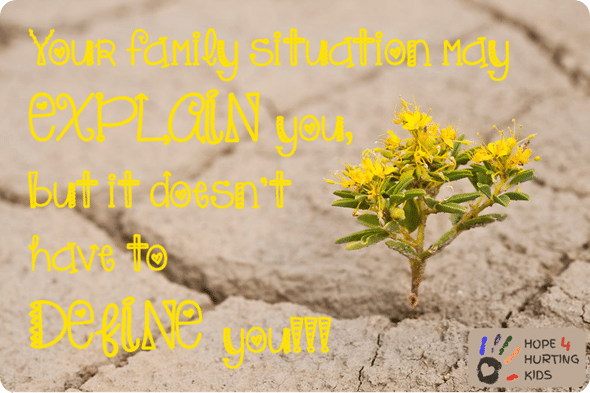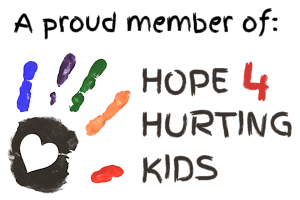
But, what if that person your Mom or Dad is still with is the person that caused the break up of your parents in the first place. Maybe the guy your Mom is with is the guy she cheated on your Dad with. Maybe your Dad’s new girlfriend is the woman he left your mom for in the first place. Maybe both of your parents are dating (or remarried to) the person they left your other parent for. How do you deal with that?
Let’s start by acknowledging the pain and the hurt that this situation causes. When your parents split up, it hurts! When you’re left to pick up the pieces and trying to figure out how to move on with life, it causes pain, confusion, stress and so much more. The loss of your family (as you knew it) hurts, and it is a loss that must be grieved.
When one (or both) of your parents cheats on the other and then leaves to be with the person they cheated with, the hurt and the pain can be that much worse. It is natural to feel betrayed, angry, confused or even abandoned. And, when your parent has a new person in their life, it oftentimes feels like they’re spending all of their time with that person and ignoring you when you need them the most. When that person is the one who “caused” the split, that feeling of being ignored or abandoned is even more intense. On top of all that, many times your parent will expect or pressure you to accept the new person in their life when that is the last thing on earth you want to do! So, what can you do about all that and how do you handle the situation? Here are a couple of suggestions:
- Talk to your mom or dad about how you are feeling. Let them know that while you understand they want you to accept this new person, you are having trouble forgiving them or making peace with them because of the role they played. Be respectful and understand that this conversation will be difficult for your parent (as well as you). That said, getting things out in the open may help you both of you to understand better where the other one is coming from. If your conversations always end in yelling and screaming, consider writing your parent a letter. Remember, this is about sharing what you’re going through not bad mouthing or attacking anybody.
- Find a trusted adult that you can talk to about what is going on and your feelings about this new person in your parent’s life. The worse thing you can do is to keep those feelings bottled up inside and/or act out in destructive ways instead of dealing with those emotions.
- Accept the fact that you are not required to hate the new person in your parents’ life. It may feel like betraying your other parent to give this person a chance, but it’s not. Chances are there was more to your parents splitting up than just this person. How would you feel about them if you had met under different circumstances?
- Practice forgiveness. It’s not always easy to forgive, and it might take you some time, but try to forgive your parent (and this new person) for what they’ve done and the pain they’ve caused you. Holding on to anger and hatred has little impact on them, but it will eat you up inside. Make the decision to forgive even if you don’t feel like it then work at it until the feelings match the decision (this may take a while, but it’s worth the journey).
- Start a journal. Write down all those things you want to say but know that you can’t (or shouldn’t). Something about writing those things out helps to smooth the pain a little bit.
- Look for the good, and choose to focus on that. There is generally some good in people who make bad choices and even in people that you can’t stand. What is good about this new person that you don’t like? Do you share any common interests or hobbies? Focus on those things rather than dwelling on the bad things. You don’t have to forget, and you don’t have to be buddy buddy, but choose to focus on the positive things for your own sake.
- Avoid conflict. Where possible, try to avoid unnecessary conflict with your parent and with their new partner. Discussion is good because it seeks resolution. Conflict only seeks to impose one another’s views on each other. As much as you might like to, you can’t change your parent and you can’t change your parent’s new partner. You can change how you choose to respond. Respond in such a way that chooses to avoid conflict rather than pouring fuel on the fire.
- Guard your heart. It’s easy to take on all of the pain, frustration, hatred and anger your parents are experiencing (or one parent is experiencing) as the result of a separation. You can be there for your parents without taking all of that on yourself. It’s not your responsibility, and frankly it’s not your place. Refuse to be a party to your parents’ conversations if they’re bad-mouthing one another, sharing details that you don’t really want or bad-mouthing your other parent’s new partner. Remind them that they are both your parents and you still love them both.
- Finally, remember that just because one person lied to you or violated your trust, it doesn’t mean that all people will. Don’t let your current circumstances color your view of all people. This will be particularly important as you start to develop new relationships and move forward with your life.











